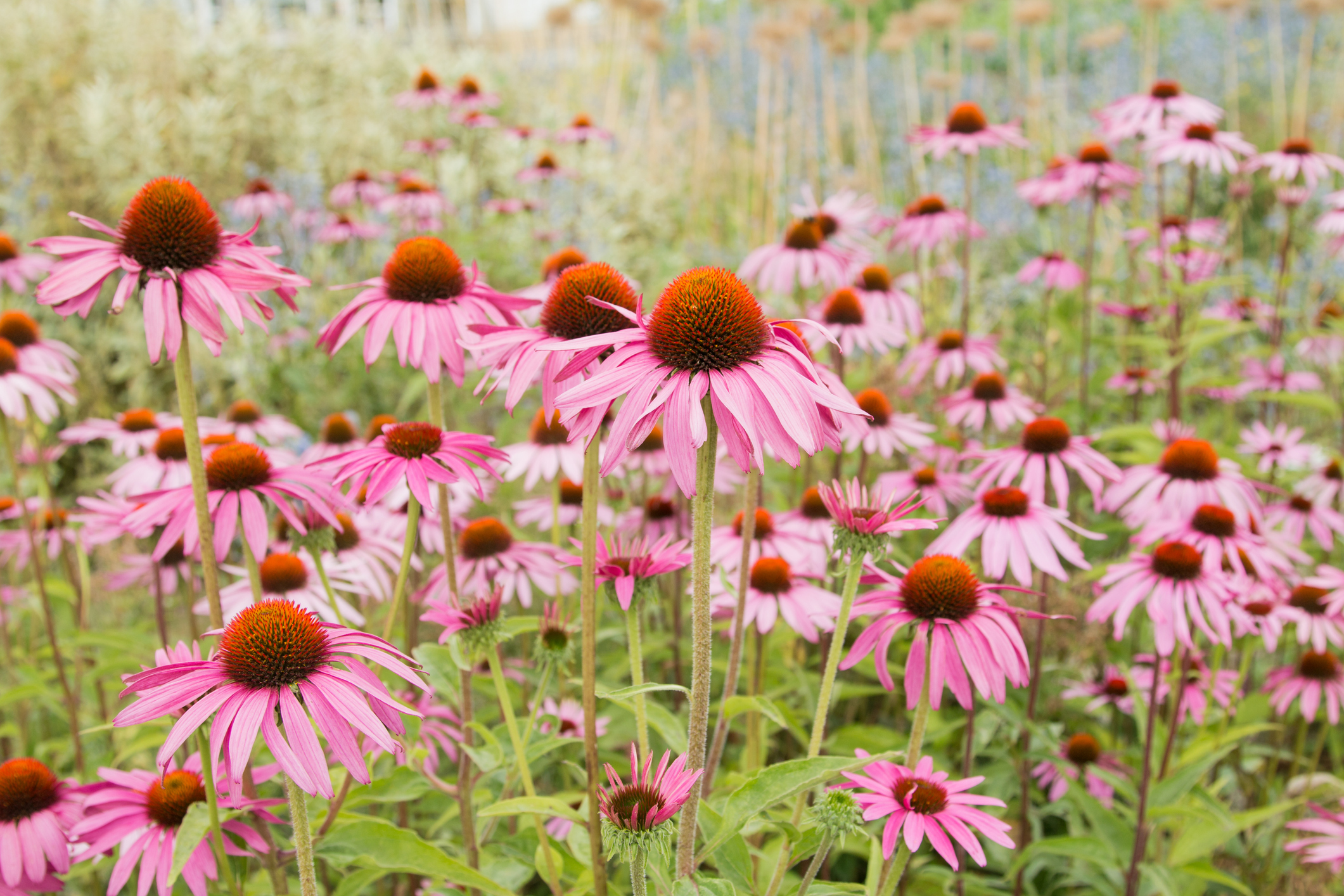
During cold season, people often search for natural cold remedies and immunity boosters. Echinacea has long been rumored to both prevent and knock out colds. But the evidence in favor of the herbal supplement is mixed, and its varied preparations make it hard to study.
The name “echinacea” refers to almost 10 species of flowering herb, and echinacea supplements use one or several of these species. They can be made using either the plant’s above-ground parts or its below-ground roots (or both). All this variance has led to disagreement among experts when it comes to echinacea’s benefits.
“Our study found no evidence for an effect of echinacea on common cold illnesses,” says Dr. Ronald Turner, a professor of pediatrics at the University of Virginia School of Medicine, referring to his 2005 study published in the New England Journal of Medicine. For that study, Turner and his colleagues treated people with multiple echinacea formulations made from the roots of the Echinacea angustifolia species. The echinacea supplements did not beat placebo when it came to preventing colds or lessening their severity.
Other experts say there is evidence that echinacea can be helpful. “Echinacea is popular because it does work for at least some people,” says Kelly Kindscher, a professor of environmental studies at the University of Kansas who has written a textbook on echinacea. While some clinical trials have not shown echinacea to be effective, Kindscher says others have found benefits.
A 2010 study published in the Annals of Internal Medicine compared echinacea to a placebo and to no treatment at all. It found evidence that echinacea outperformed both when it came to reducing the duration of the common cold — but these benefits were too small to be considered statistically significant. A 2006 review found no evidence that echinacea could prevent colds. But it did turn up findings (albeit inconsistent ones) that products containing the species Echinacea purpurea could lessen a cold’s length and symptoms.
Meanwhile, a 2014 review credited echinacea with “small preventative effects” when it came to shielding people from colds. A 2015 review gave echinacea a more full-throated endorsement, concluding that it could reduce a person’s risk for colds by 35%. How? Echinacea may work by increasing the response of natural killer cells and other immune system fighters, and also by blocking the action of some viral proteins, says Dr. Andreas Schapowal, first author of that 2015 review and a former lecturer at Hannover Medical School in Germany.
Taken together, the existing research doesn’t exactly elevate echinacea to the level of medicine. But there seem to be enough intriguing findings to warrant continued investigation—and for some cold-prone adults to give echinacea a shot.
“It might reduce the risk of a cold by some 10 to 20 percent,” says Dr. Mark Moyad, director of preventative and alternative medicine at the University of Michigan. This may seem underwhelming. “But it’s not as if we have a lot of options to prevent colds—especially in people that get a lot of colds during the year.”
When people ask him how to avoid getting sick, he says he first recommends well-established lifestyle changes—stuff like washing hands, exercising regularly and getting plenty of sleep. But if you’re doing all of those things and still getting sick, echinacea may provide some benefits, and its risks seem minimal.
Moyad says some people have experienced GI-related side effects like nausea and stomach pain when taking echinacea. In kids or adults prone to allergies, echinacea may cause rashes or other reactions. Also, herbal supplements can be dangerous when mixed with prescription drugs or even with other supplements—something few people consider before taking them, he says. (“Check with your pharmacist about the latest potential interactions,” Moyad adds.)
If none of those risks concern you and you want to give echinacea a try, Moyad recommends shopping for products that have been certified by third-party quality control companies like NSF or USP. Neither’s stamp of approval means a product will work, but it should give you confidence that the supplement will be free of additives or contaminants. Also, buy a product that contains echinacea and nothing else. (Supplements that cram together a bunch of different ingredients tend to be riskier and aren’t any more likely to be effective, Moyad says.)
The research to date doesn’t reveal which product is best, or exactly how to take it. But the NIH’s National Center for Complementary and Integrative Health says that short-term (think a few days to a few weeks) supplementation with echinacea is “probably safe.”
More Must-Reads from TIME
- Cybersecurity Experts Are Sounding the Alarm on DOGE
- Meet the 2025 Women of the Year
- The Harsh Truth About Disability Inclusion
- Why Do More Young Adults Have Cancer?
- Colman Domingo Leads With Radical Love
- How to Get Better at Doing Things Alone
- Michelle Zauner Stares Down the Darkness
Contact us at letters@time.com